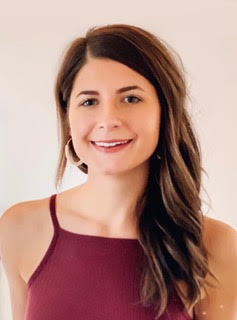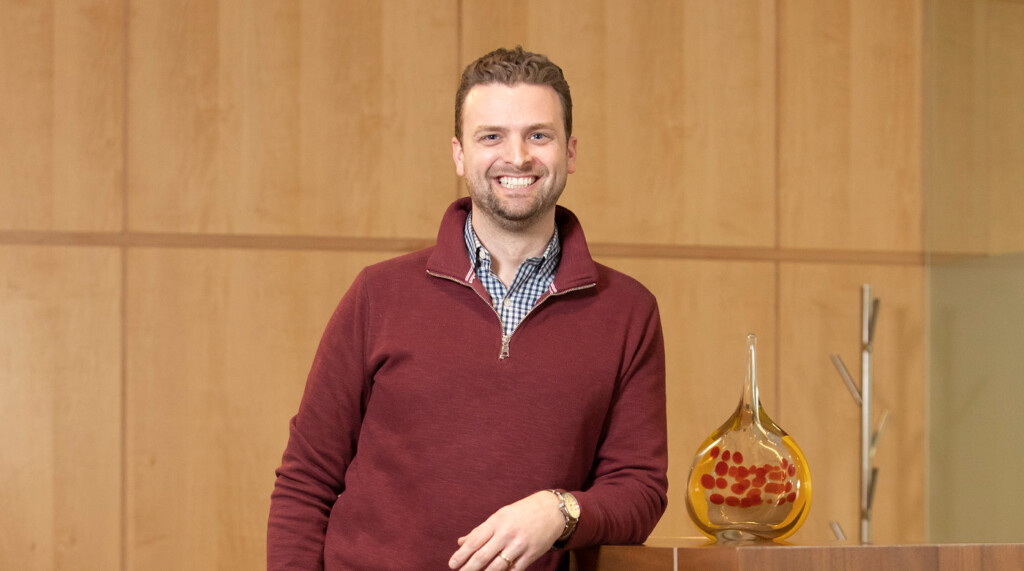Page 11 • (1,311 results in 0.042 seconds)
-

Translating the Enlightenment The National Endowment for the Humanities (NEH) recently awarded Professor of French Rebecca Wilkin a $133,333 grant under the Scholarly Editions and Translations interest area. Wilkin and her collaborator Angela Hunter, an English professor from the University of Arkansas at Little Rock,…
Timely Research PLU faculty members engage in research critical to today and tomorrow Posted by: Logan Seelye / November 1, 2021 November 1, 2021 By Veronica CrakerResoLute Assistant DirectorTranslating the EnlightenmentThe National Endowment for the Humanities (NEH) recently awarded Professor of French Rebecca Wilkin a $133,333 grant under the Scholarly Editions and Translations interest area. Wilkin and her collaborator Angela Hunter, an English professor from the University of Arkansas at
-
“I’ve never been here before,” a student told me in June 2014 as my Christian Ethics class walked to the community garden at Trinity Lutheran Church.
Trinity Lutheran Church. They are teaching my students and me about our neighborhood and showing us how to study ethics while working alongside our neighbors — pulling weeds, digging holes, washing dishes.The class is still fundamentally about critical thinking: we struggle with hard questions of Christian morality and the diversity of possible answers. But now when we discuss the complexity of Christian economic ethics, we relate it to the socioeconomic realities around us. When we discuss the
-
Why Study Religion? Religion provides orientation and direction for individuals and communities, societies and cultures.
in considering graduate school or seminary, and in thinking about how your major prepares you for whatever career you choose. Where Will a Religion Major Lead You? The study of religion prepares you for fields requiring critical, contextual and creative thinking, ethical decision-making and working with people. It allows you to learn and practice the interpretive approaches of several disciplines during your university career. As the diversity and pluralism of our world become more intensely part
-

Michael Halvorson ’85 was a technologist before he was a historian. His PLU undergraduate degree is in computer science and he worked at Microsoft for the first 10 years of his career. He spent the next 15 years writing books about software and emerging technology.…
volume, Code Nation: Personal Computing and the Learn to Program Movement in America (2020). I met with him on a rainy winter afternoon to discuss how he defines innovation, how it’s taught at PLU, and why studying history is critical to understanding the benefits and consequences of innovation. Is it possible to define innovation in a single sentence? I think so, let me try. Innovation is creating some new method or idea or product, and it is basically a creative act to do something new. Wow, there
-
The assessment plan is a critical part of program assessment. Once learning outcomes have been established and a curriculum map has been created to identify where in the curriculum learning is taking
Assessment PlanningThe assessment plan is a critical part of program assessment. Once learning outcomes have been established and a curriculum map has been created to identify where in the curriculum learning is taking place, the assessment plan outlines the process by which learning will be measured by the department. More specifically, this document will introduce a cycle of assessment, explaining where in the curriculum each LO will be evaluated and how it will be assessed (using what
-

Clinical Instructor of Nursing | School of Nursing | kerschmk@plu.edu | I began my nursing career in Critical Care and have a passion for nurturing critically ill patients/families at their most vulnerable times.
Michaela Pulley, MSN, RN Clinical Instructor of Nursing Email: kerschmk@plu.edu Office Location:Ramstad Hall - Room 308 Professional Biography Education MSN, Nursing , Pacific Lutheran University BSN, Nursing , Pacific Lutheran University Areas of Emphasis or Expertise Pathophysiology/Pharmacology courses Biography I began my nursing career in Critical Care and have a passion for nurturing critically ill patients/families at their most vulnerable times. I have worked in nursing education within
Contact InformationArea of Emphasis/Expertise -

TACOMA, Wash. (Aug. 21, 2015)—Mike Burton ’69 has been inducted into the National High School Hall of Fame for his 39 years of service as a national-award-winning speech and debate coach. Burton, who retired in 2008, is the first speech and debate coach from Washington…
qualities,” he said. “My educational experience at PLU made me realize I had to work hard, but also have critical thinking on any issue or assignment,” he said. “You need to be able to analyze and think about how is this process going to come to a successful end. Work by itself is not enough; smart work is needed.” Burton said aspiring debaters should strive for “organization, structure and higher-level thinking skills,” but most of all, passion. “To really believe what they are arguing makes a
-

When Leah Butters ‘15 decided to major in environmental studies she didn’t have healthcare marketing in mind. Actually, she didn’t have any specific professional sector in mind. The PLU Softball stand-out just knew she wanted to be in the business of service and care. “What…
all of MultiCare’s recruitment marketing, managing virtual hiring events, websites, social media, and more. “I love getting to do all of those different pieces,” she says. “It just makes it so interesting. Every day is different.” She also coordinates partnerships with Indeed, Linkedin, and other advertising partners to make sure critical positions are reaching the eyes of qualified candidates. “Our main marketing team at MultiCare is focused on our patients and communities here locally, but in
-

Michael Burris ’09 worked at the intersection of business and healthcare since before even graduating from PLU with a business major and economics minor . While in his third year at PLU, he began an internship with MultiCare Health Systems, working as the CFO’s “right-hand…
well. Both PLU and Sound invest in their people, which he says drew him to Sound as a long-term career move. PLU’s healthcare programs to “grow nurses, advanced providers, and most importantly, critical thinkers” is deeply needed within the industry, he observes. “We need a pipeline of talent that understands the complexity of problem-solving, who can apply critical thinking and compassionate care for our communities,” he says. “At the end of the day, we’re all just people taking care of people
-
The humane care and use of animals is of critical importance to Pacific Lutheran University. The law requires that all persons involved with the care and use of animals in research or teaching know
Reporting Animal ConcernsThe humane care and use of animals is of critical importance to Pacific Lutheran University. The law requires that all persons involved with the care and use of animals in research or teaching know how to report any deficiencies in animal care and treatment. Individuals who have specific concerns about the treatment of animals should report their observations to the Provost or the Chair of the University Animal Care and Use Committee for investigation. When reporting
Do you have any feedback for us? If so, feel free to use our Feedback Form.


